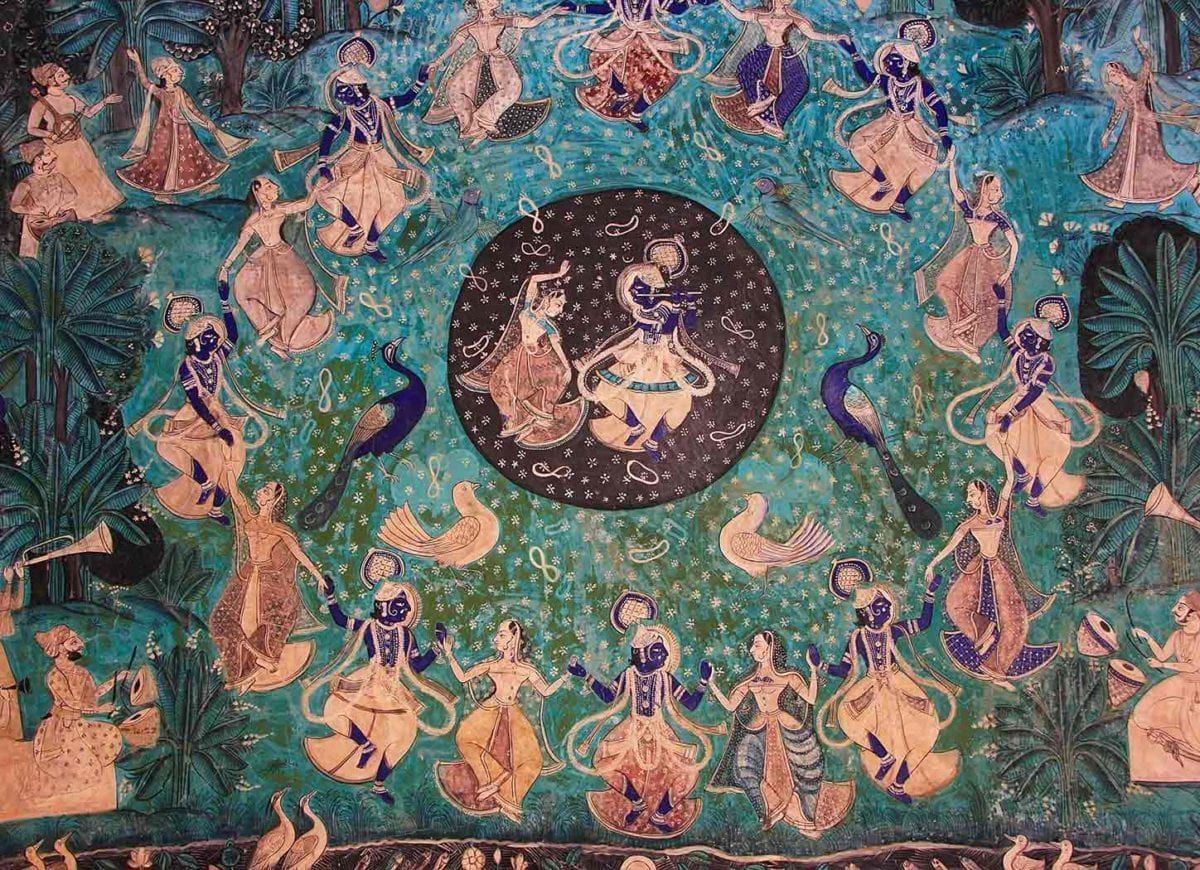I get all sorts of emails. They get filed and marked by a team of volunteers. Approximately 50% of the readers write to seek my opinion on their trials and tribulations of life. A whopping 30% email purely to show their gratitude and love. Some 10% share their own philosophical views. 1% (or a bit less) email asking me how they can help me or my cause.
The remaining 9% write only to express their hatred. They are sometimes annoyed by my views, offended by my writings, or upset over something or the other. And that’s fine. It’s a part of life. It’s impossible to keep everyone happy. Over the years, I have learned to insulate myself from the opinions of others. It’s neither natural nor easy, but anyone who wishes to bathe in the stream of inner bliss had better learn the art of indifference to the world’s opinion about them.
My mantra is very simple, at the end of the day (literally), before going to bed, I ask myself three questions. Did I give it my best shot? Did I speak and act mindfully? Did I help someone today? That’s all we can do, really. If you did everything you could to have a meaningful day, not hurt anyone’s sentiments, and you acted out of kindness, you are good. You’ve done all you could. And still, if someone or a group of people have an intense disliking for you, well, God help them.
Hatred is an incredibly forceful emotion. In fact, it is strangely, sadly, and wrongly empowering. It trumps sanity and compassion in the blink of an eye. Just look around and you’ll find plenty of religious fanatics to see what I mean. What’s worse, they don’t think they are being fanatical. And this is a classic symptom of hate: it makes you blind. I don’t have to elaborate on it; history has enough examples.
Martin Luther King, Jr. said beautifully, “Like an unchecked cancer, hate corrodes the personality and eats away its vital unity. Hate destroys a man’s sense of values and his objectivity. It causes him to describe the beautiful as ugly and the ugly as beautiful, and to confuse the true with the false and the false with the true.”
Sadly, somewhere, each one of us has a trace of hatred in us. It’s the hard truth. After all, hate is nothing but an intense feeling. As long as we have insecurities or fears (which almost everyone does), we are likely to have jealousy and hatred too. That doesn’t mean we have to live with these emotions though.
We can purify ourselves to remove every last hint of jealousy and hate from our very being. And the ritual of this inner purification does not start from meditation. Instead, it begins by practicing restraint of speech. So often, we utter hurtful, contemptuous, and inappropriate words directed at someone we have never met, aimed at someone who doesn’t even know us. Such words create a fertile ground for hatred.
I am reminded of a small incident from my childhood. A famous religious figure was accused of an immoral activity and he was at the center of some scandal. The news was all over the telly.
“Here’s the crook,” I said as soon as his image was flashed. “They all are crooks, in fact.”
“Son,” my mother intervened, “why badmouth someone you don’t even know? We don’t know the complete truth. We don’t know his reasons. Chances are we’ll never even meet him ever. He doesn’t know you either. Why form an opinion and pollute your own mind?”
I was about 8 or 9 years old at the time but somehow, it seeped into me.
“Besides,” she added, “if we don’t have anything nice to say, the least we can do is not spit at the other person.”
“Are you saying I should be quiet even if see something wrong?” I asked.
“No,” she replied instantly. “You should stand up against the wrong but here we are talking about speaking foul about someone who is not even listening to you at the moment. Your remarks are not reaching him in any way. Loathsome words will only breed contempt in you. Let’s look within ourselves first.”
Her words had a lasting impact on me because she stated what she practiced herself. I try my best to stay away from commenting on things or people I don’t really know about.
There will always be some who will dislike us and not everyone has to like us anyway. We can’t stop others from feeling a certain way about us. Besides, their hatred is not about you. It’s about what they think they know about you. It’s about what they think you ought to be like. It directly stems from a lack of understanding. You can only hate what you don’t understand because once you understand the other person or perspective, the energy of hatred transforms into compassion.
Mulla Nasrudin was traveling on a train. A lady next to him tried to get Mulla’s attention but he was busy reading his book. The lady sprayed a bit more perfume on her, she softly crooned a song, took out a mirror from her handbag and fixed her lipstick. She excused herself and got up a couple of times on the pretext of using the washroom. Mulla but remained engrossed in his book.
“Stop annoying me!” she yelled at him after a couple of hours.
“Excuse me,” Mulla replied in disbelief. “I haven’t said a word or even looked at you.”
“Exactly! I find it utterly annoying and unbearable.”
This is the anatomy of hate in a nutshell: we hate what we can’t stand (or understand). And whatever we can’t stand is entirely dependent on our own wisdom, preferences, perspective and upbringing.
The sad part is that hatred is something that we are taught. No one is born with it, it is not innate. When we have hatred in our hearts, it means that some person, ideology or incident has taught us how to hate. Which, subsequently and thankfully, also implies that it’s something we can unlearn. All unlearning (and learning) begins with mindfulness at four levels. One for another time.
We can choose what we learn. Hatred needn’t be one of them. Let’s learn things that purify our consciousness, uplift our soul and encourage us to walk the path of truth and compassion. For, noble conduct alone will uncover your inner beauty. Love is a million times more powerful than hate, for love creates space and makes mansions where hatred can’t even slip in.
What is love, you ask? Care, compassion, empathy and reciprocation make up love. When you are in love, these come naturally. Practice them in your heart and love will shine through every pore of your existence like the soft winter sun, soothing and warming everything around you.
Choose love over hate and you’ll never be disappointed.
Peace.
Swami
Course
Art of Meditation
Free yourself from suffering and live life to the fullest. Learn the yogic technique of meditation in 4 days (and master it over a lifetime)
Our speech and actions are a reflection of our thoughts. When we find ourselves behaving acrimoniously towards somebody, chances are we treat ourselves the same way. When we are too hard on someone, we are most likely hard on ourselves too. A love-hate relationship with someone begins with the love-hate relationship we have towards ourselves. The questions below may help you gain an insight on such equations and what we can do to turn a love-hate relationship into one of pure love and trust:
My equation with others always starts out great but slowly descends into a love-hate relationship. Am I doing something wrong?
People do not love you or hate you. It is not actually about you. The sustenance of relationships is often dependent on what people have for each other. If you want someone to love you constantly, you have to keep offering what they want.
So, you have two choices, one, either be yourself, ever doing the right karma, be happy with varying degrees of love you get, or, two, keep adapting, adopting, and asking for more. The first one is synonymous with turning inward, and the second one is insatiable a bottomless pit, an endless pursuit, synonymous with a love-hate relationship.
Read more here.
Why are my child and I always fighting? Of late, it feels like a love hate relationship.
To love is to stand your ground where needed for the betterment of your children. You don’t have to be harsh. There’s no need to shout, argue violently, or be mad at them. You can be gentle and still be firm.
It sounds obvious but you’ll be surprised to see how many parents rather than simply and gently stating their expectations start lecturing instead. I call it OLD – Obsessive Lecture Disorder.
If you tackle OLD with mindfulness, understanding, and practicing parental compassion, the quality of your relationship will improve immensely. It will no longer be a love-hate relationship but one filled with trust and joy.
Read more here.
How do I become a better parent so that my love hate relationship with my child reaches a point of joy and friendship?
Good parenting requires that you give your children time. I know it’s demanding at work, but to make a “good parent” you have to give a “good time”. If your children can come home and share their pains and sorrows without the fear of reprisal or penalties, the tree of friendship will take deep roots. Your love-hate relationship will transform itself.
Here’s the secret of joy in a relationship: don’t take yourself too seriously. The flower of life only unfolds with time.
Read more here.
My best friend and I argue frequently nowadays. We seem to share a love-hate relationship. What are we doing wrong?
Friendship doesn’t mean that you never challenge the other person or only agree to whatever they want to do or say. It is about expressing your honest opinion but respecting their right to make choices they see fit. This is not a love-hate relationship but a true one. Any relationship where one person is constantly on his or her toes to please the other person, will one day fall apart. Without fail. Because it’s not practical and soon it’ll get very tiring. Agreeing to disagree is how two friends end any undesirable argument.
Read more here.
I’m tired of sharing a love-hate relationship with most of my loved ones. How do I fix it and make everything okay?
Both happiness and sadness like pleasure and pain are fleeting feelings. It’s just that we so despise sadness and pain that the moment there’s even the slightest trace of it in our lives, we are taken aback. If you want to have any chance at going with the flow of life (and enjoying the process), it’s imperative to remind yourself that nothing is permanent, suffering is okay.
At the root of such suffering is the clinging to our expectations from life, as if we really know how life ought to be. These expectations are the primary cause of a love-hate relationship.
Read more here.
A GOOD STORY
There were four members in a household. Everybody, Somebody, Anybody and Nobody. A bill was overdue. Everybody thought Somebody would do it. Anybody could have done it but Nobody did it.
Don't leave empty-handed, consider contributing.It's a good thing to do today.









Comments & Discussion
7 COMMENTS
Please login to read members' comments and participate in the discussion.